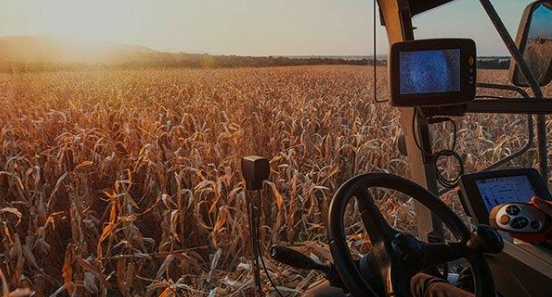
In the rapidly evolving landscape of modern agriculture, precision agriculture emerges as a transformative approach, blending technology, data analytics, and agronomy to optimize farming practices. At the forefront of this agricultural revolution is the Precision Agriculture Specialist—an expert who harnesses the power of innovation to enhance crop yields, minimize environmental impact, and shape the future of sustainable food production. This exploration delves into the multifaceted world of Precision Agriculture Specialists, examining their roles, the technologies they employ, the benefits they bring to the agricultural sector, and the challenges they face.
The Rise of Precision Agriculture
Evolution of Farming Practices
Historically, agriculture has been a blend of tradition and innovation. From the earliest days of manual cultivation to the advent of machinery during the agricultural revolution, farmers have continually sought ways to improve efficiency and productivity. However, the 21st century has witnessed an unprecedented integration of technology into farming practices, giving birth to what is now known as precision agriculture.
Definition of Precision Agriculture
Precision agriculture, often referred to as precision farming or precision ag, involves the use of advanced technologies to optimize various aspects of farming at a spatial and temporal scale. It relies on real-time data, sensors, GPS technology, and analytics to make informed decisions about crop management. The overarching goal is to tailor farming practices to the specific needs of individual plants or small sections of fields, maximizing efficiency and minimizing resource use.
The Role of Precision Agriculture Specialists
Definition and Responsibilities
A Precision Agriculture Specialist is a professional who specializes in the application of precision agriculture technologies and practices. These specialists are at the intersection of agriculture, technology, and data science, playing a pivotal role in helping farmers leverage cutting-edge tools to enhance their decision-making processes.
Key Responsibilities:
- Technology Implementation: Precision Agriculture Specialists are responsible for implementing and managing the deployment of technology on farms. This includes the installation and maintenance of sensors, GPS systems, and other precision agriculture tools.
- Data Analysis: Specialists analyze large datasets generated by precision agriculture technologies to extract meaningful insights. They interpret data related to soil health, crop conditions, weather patterns, and other variables to guide farmers in making informed decisions.
- Farm Mapping and Zoning: Precision agriculture involves dividing fields into zones based on variations in soil type, topography, and other factors. Specialists create detailed maps and prescribe specific interventions for each zone to optimize resource use.
- Recommendation of Precision Technologies: Precision Agriculture Specialists recommend the adoption of specific technologies, such as automated tractors, drones, variable-rate seeding equipment, and smart irrigation systems, based on the unique needs and goals of each farm.
- Collaboration with Farmers: Specialists work closely with farmers to understand their goals, challenges, and preferences. This collaborative approach ensures that precision agriculture strategies align with the broader objectives of the farming operation.
- Education and Training: Precision Agriculture Specialists provide training and support to farmers and farm personnel on the use of precision agriculture technologies. They ensure that end-users are comfortable with the tools and can effectively integrate them into their daily operations.
Required Skills and Qualifications
To excel in the role of a Precision Agriculture Specialist, individuals need a diverse set of skills that combine agricultural knowledge with technical expertise. Key qualifications and skills include:
- Agricultural Background: A foundational understanding of agronomy, soil science, and crop management is crucial for interpreting data and providing relevant recommendations to farmers.
- Technological Proficiency: Familiarity with a range of technologies, including GPS systems, sensors, drones, and data analytics tools, is essential. Specialists should be comfortable navigating and troubleshooting various precision agriculture platforms.
- Analytical Skills: The ability to analyze and interpret large datasets is a fundamental aspect of the role. Specialists should be adept at deriving actionable insights from complex agricultural data.
- Communication Skills: Effective communication is key for collaborating with farmers, conveying technical information in a digestible manner, and facilitating knowledge transfer.
- Problem-Solving: Precision Agriculture Specialists encounter challenges ranging from technological glitches to data discrepancies. Strong problem-solving skills are essential to address issues promptly and ensure the smooth operation of precision agriculture systems.
- Adaptability: The field of precision agriculture is dynamic, with constant advancements in technology. Specialists need to stay abreast of industry trends, adapt to evolving tools, and guide farmers in incorporating new technologies into their practices.
Technologies Utilized by Precision Agriculture Specialists
Precision Agriculture Specialists leverage an array of technologies to enhance farming practices. These tools provide valuable insights into soil health, crop conditions, and overall farm performance. Some key technologies include:
1. Global Positioning System (GPS)
GPS technology plays a foundational role in precision agriculture by providing accurate location data. This enables farmers and specialists to precisely map fields, track equipment movements, and create detailed spatial records. GPS is integral to implementing variable-rate applications, where inputs such as fertilizers or pesticides are adjusted based on specific locations within a field.
2. Sensors and IoT Devices
Various types of sensors are deployed in precision agriculture to collect real-time data on soil moisture, nutrient levels, temperature, and crop health. These sensors, often connected through the Internet of Things (IoT), continuously monitor conditions and contribute to a comprehensive understanding of the farm environment. Specialists use this data to make informed decisions on irrigation, fertilization, and pest management.
3. Drones
Unmanned aerial vehicles, or drones, equipped with advanced imaging technology offer a bird’s-eye view of fields. Drones capture high-resolution images, multispectral imagery, and thermal data, providing valuable insights into crop health, identifying areas of stress or disease, and enabling the creation of detailed field maps. Precision Agriculture Specialists use drone imagery for crop scouting, monitoring, and assessing the effectiveness of various interventions.
4. Automated Tractors and Machinery
Precision agriculture extends to the mechanization of farm equipment. Automated tractors equipped with GPS technology can follow predetermined paths with minimal overlap, optimizing field coverage and reducing fuel consumption. This technology enhances the efficiency of planting, harvesting, and other field operations.
5. Variable-Rate Technology (VRT)
VRT allows for the variable application of inputs, such as fertilizers and pesticides, based on the specific needs of different areas within a field. Precision Agriculture Specialists use VRT to create prescription maps, guiding farmers in adjusting input rates based on variations in soil fertility and crop requirements. This targeted approach maximizes the effectiveness of inputs while minimizing environmental impact.
6. Smart Irrigation Systems
Precision agriculture extends to water management through the use of smart irrigation systems. These systems, often incorporating soil moisture sensors, enable farmers to optimize irrigation schedules based on real-time data. Precision Agriculture Specialists assist in the design and implementation of smart irrigation strategies to conserve water and enhance crop productivity.
7. Data Analytics and Farm Management Software
Sophisticated data analytics tools and farm management software are central to the work of Precision Agriculture Specialists. These platforms process and analyze data from various sources, providing actionable insights to farmers. Specialists use these tools to create prescription maps, monitor crop performance, and assess the overall health of the farm.
Benefits of Precision Agriculture
1. Improved Resource Efficiency
Precision agriculture allows farmers to optimize the use of resources, including water, fertilizers, and pesticides. By tailoring inputs to the specific needs of each area within a field, farmers can reduce waste, minimize environmental impact, and achieve greater resource efficiency.
2. Enhanced Crop Yields
The targeted application of inputs, informed by data-driven insights, contributes to increased crop yields. Precision Agriculture Specialists work with farmers to identify and address factors affecting yield variability, leading to more consistent and robust harvests.
3. Sustainable Farming Practices
Precision agriculture aligns with principles of sustainability by promoting practices that conserve resources and reduce the environmental footprint of farming. Smart irrigation, variable-rate applications, and soil health monitoring contribute to the adoption of environmentally friendly farming practices.
4. Cost Savings
Optimizing input use and reducing unnecessary overlaps in field operations result in cost savings for farmers. Precision agriculture helps farmers allocate resources more efficiently, minimizing expenses associated with inputs and fuel.
5. Data-Driven Decision-Making
Precision Agriculture Specialists empower farmers with data-driven insights, enabling them to make informed decisions. The analysis of real-time data on soil conditions, crop health, and weather patterns informs strategic choices, enhancing overall farm management.
6. Early Detection of Issues
The use of sensors, drones, and other monitoring technologies enables early detection of issues such as pest infestations, diseases, or nutrient deficiencies. Early intervention based on timely data helps prevent or mitigate potential crop losses.
7. Customized Crop Management
Precision agriculture facilitates a customized approach to crop management. Farmers can tailor interventions based on the unique characteristics of different areas within a field, addressing specific challenges and optimizing outcomes.
Challenges Faced by Precision Agriculture Specialists
1. Technology Adoption Barriers
While precision agriculture technologies offer immense benefits, the initial cost of adoption can be a barrier for some farmers. Precision Agriculture Specialists may face challenges in convincing farmers of the long-term return on investment and the transformative impact of technology on their operations.
2. Data Management and Privacy Concerns
The abundance of data generated by precision agriculture technologies raises concerns about data management and privacy. Precision Agriculture Specialists must navigate issues related to data ownership, security, and the responsible use of farmer-generated information.
3. Lack of Technical Literacy
Some farmers may lack the technical literacy needed to fully embrace precision agriculture. Specialists must bridge the knowledge gap by providing effective training and support to ensure that end-users can confidently utilize these advanced technologies.
4. Connectivity Issues
In remote or rural areas, limited internet connectivity can pose challenges for the seamless operation of precision agriculture technologies. Specialists need to explore solutions, such as offline data storage or alternative communication methods, to address connectivity issues.
5. Standardization and Compatibility
The diversity of precision agriculture technologies on the market may result in compatibility issues. Standardization and interoperability are critical to ensuring that different tools and platforms can work seamlessly together, enabling a holistic approach to farm management.
6. Resistance to Change
Farmers accustomed to traditional farming practices may resist the transition to precision agriculture. Specialists need to engage in effective communication, demonstrating the benefits and gradual integration of these technologies to build trust and encourage adoption.
7. Environmental and Ethical Considerations
While precision agriculture offers sustainable practices, the environmental and ethical implications of certain technologies, such as drones or automated machinery, may raise concerns. Specialists must address these considerations and ensure that the adoption of precision agriculture aligns with ethical and environmental principles.
Innovations and Future Trends
1. Artificial Intelligence (AI) and Machine Learning
The integration of AI and machine learning in precision agriculture holds the promise of advanced data analysis and decision-making. These technologies can enhance predictive modeling, enabling Precision Agriculture Specialists to anticipate crop conditions, pest outbreaks, and other variables with greater accuracy.
2. Edge Computing
Edge computing involves processing data closer to its source, reducing the need for centralized cloud processing. This can address connectivity challenges in remote areas and enhance the real-time capabilities of precision agriculture technologies.
3. Blockchain for Supply Chain Transparency
Blockchain technology offers a decentralized and secure way to track and verify transactions. In agriculture, blockchain can be utilized for supply chain transparency, allowing consumers to trace the journey of agricultural products from farm to table. Precision Agriculture Specialists may play a role in implementing and managing blockchain-based systems.
4. Autonomous Vehicles
The development of autonomous vehicles for agricultural tasks, such as planting, harvesting, and spraying, represents a significant advancement. Precision Agriculture Specialists can guide farmers in adopting and optimizing the use of autonomous machinery for increased efficiency.
5. Integration of Remote Sensing Technologies
Advancements in remote sensing technologies, including satellite imagery and hyperspectral imaging, provide additional layers of information for Precision Agriculture Specialists. These technologies enhance the ability to monitor large agricultural landscapes and gather data beyond the scope of traditional on-farm sensors.
6. Climate-Resilient Precision Agriculture
With the increasing impact of climate change, there is a growing focus on climate-resilient precision agriculture. Specialists may explore strategies such as climate-smart agriculture, which incorporates adaptive measures to mitigate the effects of changing weather patterns on crop production.
Education and Training for Precision Agriculture Specialists
Becoming a Precision Agriculture Specialist requires a blend of formal education, practical experience, and ongoing learning. Key components of education and training include:
1. Academic Background
- Bachelor’s Degree: A bachelor’s degree in agriculture, agronomy, environmental science, or a related field serves as a foundational qualification for Precision Agriculture Specialists. Coursework may cover soil science, crop management, and agricultural technology.
- Specialized Training: Specialized courses or certifications in precision agriculture technologies, data analytics, and GIS (Geographic Information System) can enhance the skill set of aspiring specialists.
2. Practical Experience
- Internships: Practical experience through internships or hands-on projects provides exposure to real-world precision agriculture scenarios. This practical knowledge is invaluable for understanding the challenges and nuances of implementing technology on farms.
- Field Work: Spending time in the field allows aspiring specialists to gain insights into the daily operations of farms, interact with farmers, and understand the diverse conditions that influence precision agriculture strategies.
3. Ongoing Professional Development
- Continuing Education: Given the rapid pace of technological advancements, Precision Agriculture Specialists benefit from ongoing education and training. This may involve participation in workshops, webinars, and conferences focused on the latest developments in precision agriculture.
- Networking: Building a professional network within the agriculture and technology sectors allows specialists to stay informed about industry trends, collaborate on projects, and share knowledge with peers.
The Future of Precision Agriculture
As the global population continues to grow, and the demand for food rises, the role of Precision Agriculture Specialists becomes increasingly critical. The future of precision agriculture holds exciting possibilities, with continued advancements in technology, greater integration of data analytics, and a focus on sustainable farming practices. Some key considerations for the future include:
1. Global Adoption of Precision Agriculture
While precision agriculture has gained traction in many developed countries, there is potential for broader global adoption. Precision Agriculture Specialists may play a role in facilitating the transfer of knowledge and technology to regions where the benefits of precision agriculture are yet to be fully realized.
2. Collaboration Across Sectors
The intersection of agriculture, technology, and data science necessitates collaboration across sectors. Precision Agriculture Specialists may work closely with agritech companies, research institutions, government agencies, and farmers to create a collaborative ecosystem that drives innovation and adoption.
3. Sustainable and Regenerative Practices
The future of precision agriculture is likely to align with broader trends in sustainable and regenerative agriculture. Precision Agriculture Specialists may advocate for practices that enhance soil health, promote biodiversity, and contribute to the overall resilience of agricultural ecosystems.
4. Policy Support for Precision Agriculture
Governments and policymakers play a crucial role in shaping the landscape for precision agriculture. Policies that support the adoption of technology, provide incentives for sustainable practices, and address challenges such as data privacy will influence the trajectory of precision agriculture.
5. Consumer Awareness and Demand
As consumers become more conscious of the environmental impact of food production, there is an opportunity for Precision Agriculture Specialists to contribute to transparent supply chains. Consumer awareness and demand for sustainably produced food may drive the integration of precision agriculture into mainstream agricultural practices.
6. Integration of Artificial Intelligence
The integration of artificial intelligence into precision agriculture holds significant potential for enhancing decision-making processes. AI algorithms can analyze vast datasets, predict outcomes, and provide actionable insights to farmers with increasing accuracy.
7. Empowering Smallholder Farmers
Efforts to make precision agriculture accessible to smallholder farmers in developing regions will be crucial. Precision Agriculture Specialists may contribute to initiatives focused on creating affordable, user-friendly technologies tailored to the needs of smaller-scale farming operations.
Conclusion
In the dynamic realm of modern agriculture, Precision Agriculture Specialists stand as pioneers, navigating the intersection of tradition and technology to usher in a new era of farming. Their expertise, rooted in agronomy and fortified by technological acumen, enables farmers to cultivate with precision, optimize resources, and meet the challenges of a changing agricultural landscape.
As the world looks toward a future where sustainable and efficient food production is paramount, the role of Precision Agriculture Specialists becomes increasingly vital. Through the thoughtful integration of cutting-edge technologies, data analytics, and a deep understanding of agricultural ecosystems, these specialists contribute to a resilient and productive agricultural sector.
The journey of Precision Agriculture Specialists is one of continuous learning, adaptation, and collaboration. As they guide farmers into the realm of precision agriculture, they sow the seeds of innovation, harvest the fruits of efficiency, and cultivate a sustainable legacy for the future of farming.







